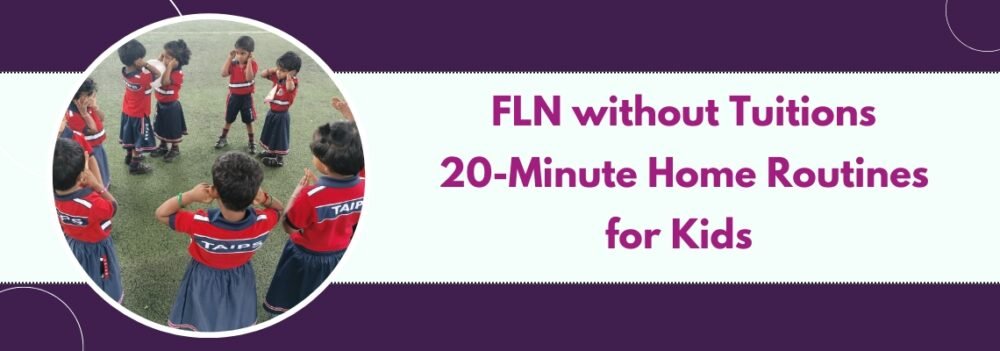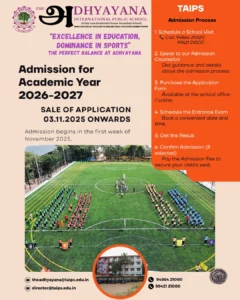FLN without Tuitions: 20-Minute Home Routines for Kids
Building strong Foundational Literacy and Numeracy (FLN) skills in Classes 1–3 is essential for every child’s lifelong learning journey. Many Indian parents wonder if their children can master these basics at home, without the need for tuitions. The great news is that FLN without tuitions is not only possible but even enjoyable, using simple, focused 20-minute home routines tailored for young learners.
Why FLN Matters and Why Tuitions Aren’t Mandatory
Foundational skills in language and maths are the building blocks for all future academic success. Children who develop solid reading, writing, speaking, and number skills in the early years build a natural love for learning and gain confidence. While tuitions might seem like a shortcut, daily structured routines at home can be equally, if not more, effective. Engaged parents, a positive environment, and interactive activities offer the personal connection that children need to thrive—without stress or extra costs.
The 20-Minute FLN Routine: How Indian Parents Can Make It Work
A well-planned 20-minute home routine can do wonders. Start by setting aside a dedicated time each day for these activities—perhaps in the evening or just after homework. Consistency is the secret. Begin with a short warm-up, like casual conversation or a simple poem, followed by the main activities, and end with a quick recap to reinforce learning.
For Literacy
Invite your child to read aloud from a favourite picture book or short story, encouraging them to sound out new words. Take turns reading and discussing the storyline, characters, and pictures, keeping the mood light and interactive. Enjoy word games, rhyming challenges, or a “word of the day” practice to expand their vocabulary naturally. Writing short thank-you notes, shopping lists, or a short diary entry can turn writing into a fun daily habit.
For Numeracy
Make numbers part of daily life. Count fruits during snack time, measure water while filling bottles, and play simple addition/subtraction games with household objects. Pose questions like “If we have three apples and give away one, how many are left?” Use songs and clapping for counting, and practice skip counting using steps or toys. Board games with dice, sorting buttons by colour or size, and drawing numbers in sand or flour can all make maths playful and memorable.
Blending the Routine
Switch between literacy and numeracy each day, or dedicate ten minutes to each skill. Always keep the tone positive—applaud every little success and avoid pressure. If your child stumbles, help them gently, showing that mistakes are part of learning. End each session with praise and a fun reward like a sticker or a story.
Keeping FLN without Tuitions Enjoyable

Remember to celebrate progress, not perfection. Involve other family members by turning routines into group activities or friendly competitions. Take the learning outside—look for numbers in car plates, read signs, or describe objects in the park. The goal is to make literacy and numeracy part of everyday conversation, building skills naturally.
Support for Parents
Indian parents don’t need to be experts to support FLN without tuitions. Use school books, free online resources, and your own creativity to guide daily practice. Don’t hesitate to connect with teachers for feedback or extra ideas when needed.
At The Adhyayana International Public School (TAIPS), a leading CBSE school in Coimbatore, we believe every child can achieve strong foundational skills through encouragement, regular home routines, and joyful learning. For more tips and to see how TAIPS nurtures confident, independent learners, visit our CBSE School.



